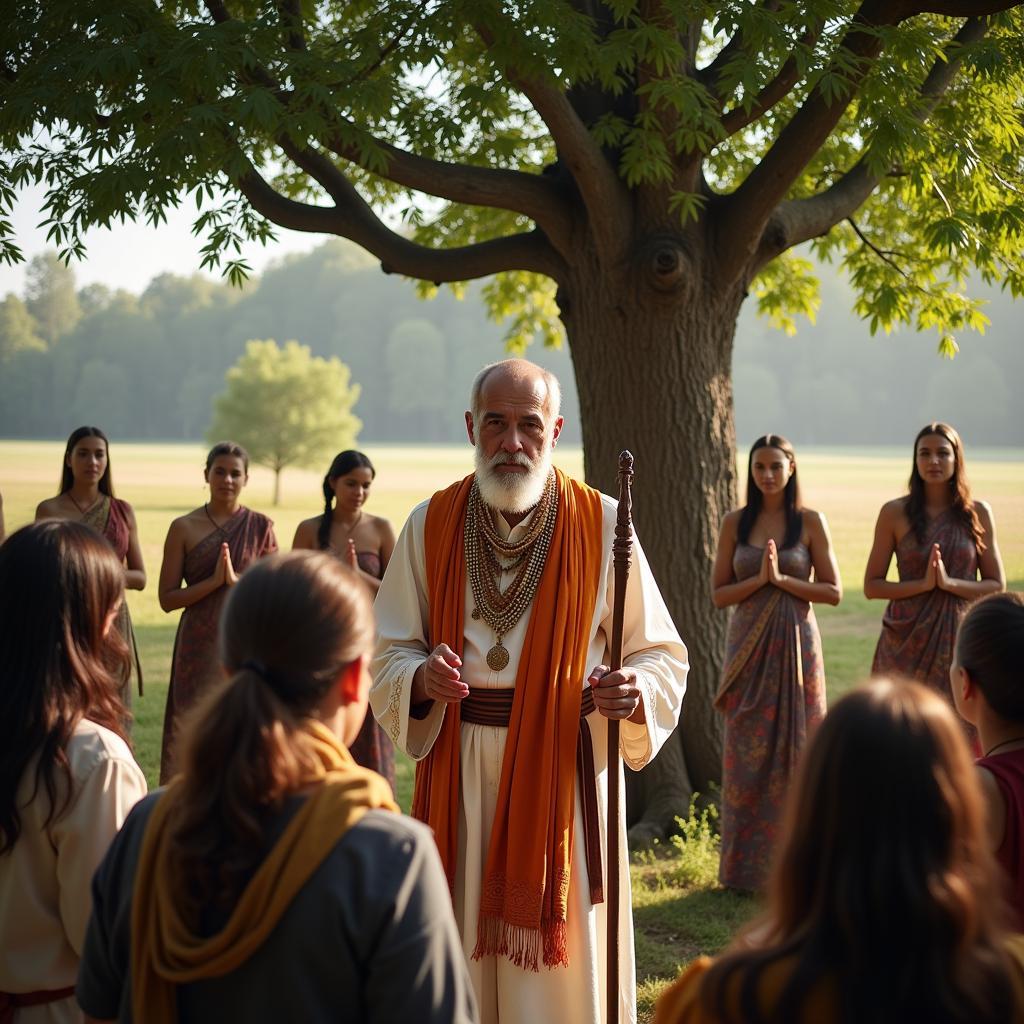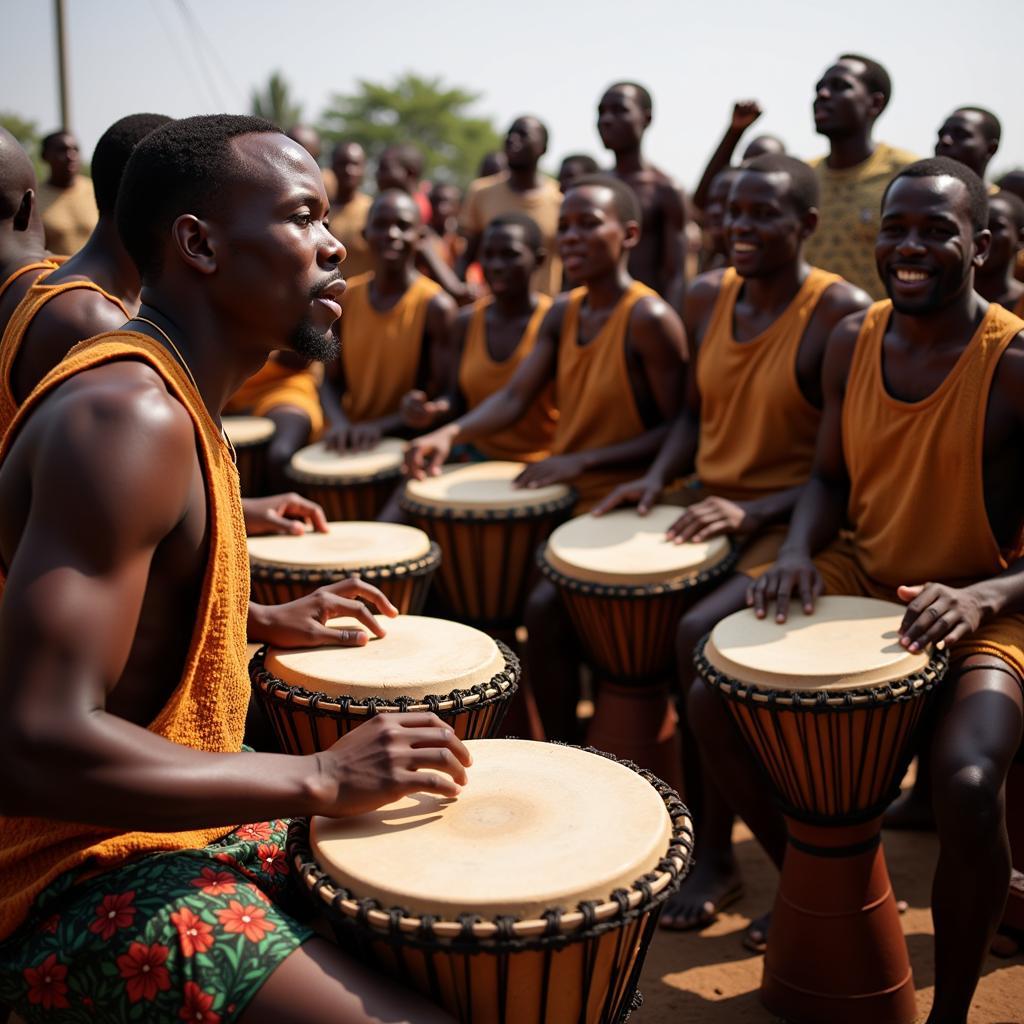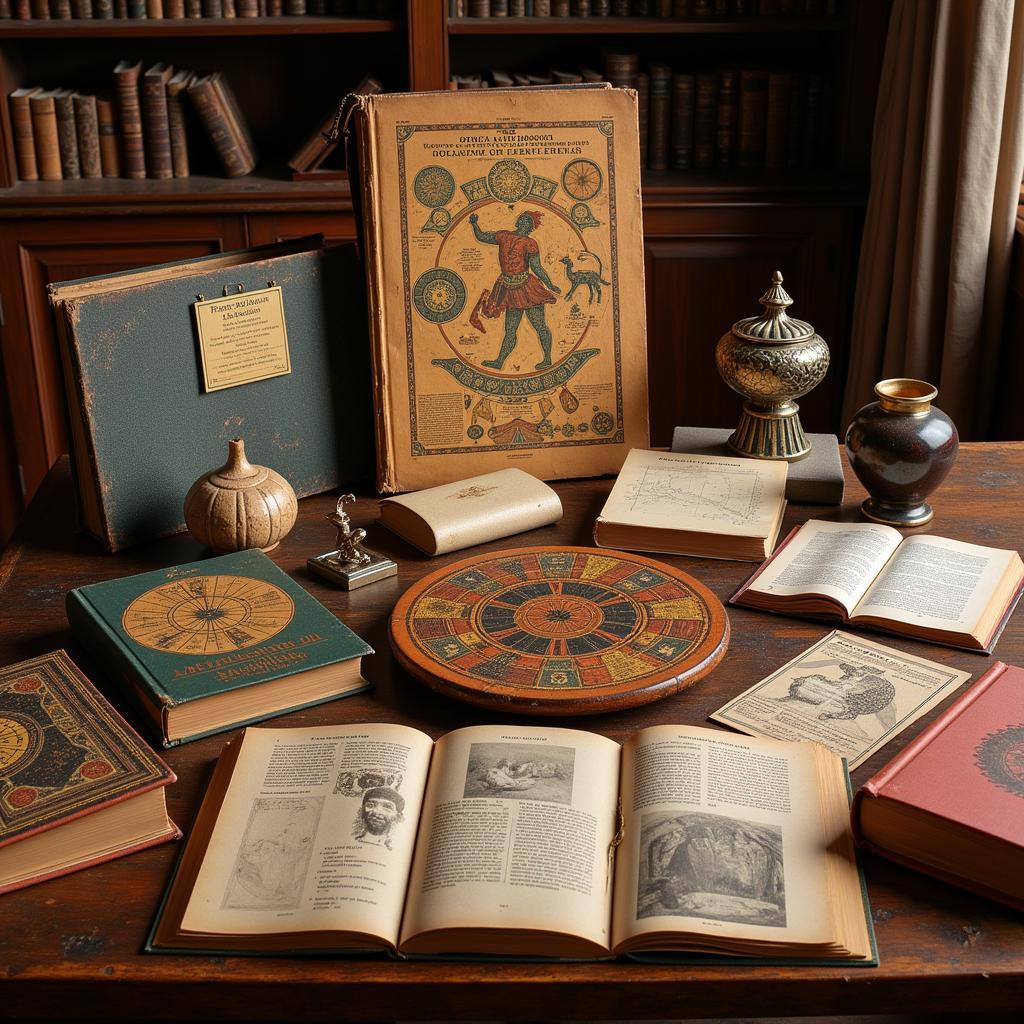Connecting with the Past: Understanding African Ancestral Prayer
African Ancestral Prayer is a powerful practice deeply embedded in the spiritual fabric of many African cultures. It acknowledges the enduring connection between the living and the departed, recognizing ancestors as guides, protectors, and intermediaries between the human and spiritual realms. This practice, passed down through generations, plays a vital role in shaping cultural identity, values, and social cohesion across the continent. Learn more about the fascinating world of African ancestral prayer and its significance in various communities.
The Significance of African Ancestral Prayer
African ancestral prayer is not merely a ritualistic act; it’s a way of life. It reflects a profound respect for those who came before and a belief in their continued presence and influence in the lives of their descendants. This belief fosters a sense of continuity, belonging, and responsibility to uphold the traditions and values of the past. Through prayer, individuals seek blessings, guidance, and protection from their ancestors, acknowledging their wisdom and experience. The practice also serves as a reminder of the interconnectedness of life and the importance of honoring one’s lineage. Often intertwined with traditional African religions, these prayers are essential to maintaining harmony within families and communities.
How is African Ancestral Prayer Practiced?
The forms and practices of African ancestral prayer vary widely across the diverse cultures of the continent. Some communities offer prayers at family altars, incorporating offerings of food, drink, and other symbolic items. Others may hold elaborate ceremonies involving music, dance, and storytelling, creating a vibrant atmosphere of connection with the ancestral world. Still others may communicate with their ancestors through dreams, visions, or consultations with spiritual leaders. african death rituals often incorporate elements of ancestral prayer, reinforcing the ongoing relationship between the living and the dead.
The Role of Elders in Ancestral Prayer
Elders often play a crucial role in guiding ancestral prayer practices. Their deep knowledge of traditions and customs ensures the proper observance of rituals and the accurate transmission of ancestral wisdom to younger generations. They act as living links to the past, ensuring that the connection between the living and the departed remains strong. “Ancestral veneration is not about worshipping the dead,” explains Dr. Adebayo Olajide, a renowned scholar of African religions, “but about recognizing their continued presence and seeking their guidance in navigating life’s challenges.”
What is the Purpose of Ancestral Prayer?
African ancestral prayer serves multiple purposes, from seeking guidance in personal matters to ensuring the well-being of the entire community. Individuals may pray for blessings in times of need, such as illness, hardship, or important life decisions. They may also seek their ancestors’ wisdom in resolving conflicts, making choices, and navigating the complexities of life. Communal prayers often focus on ensuring prosperity, good harvests, and protection from harm.
African Ancestral Prayer in the Modern World
Despite the influence of modernization and globalization, African ancestral prayer remains a vibrant practice in many parts of the continent. It continues to provide a source of strength, identity, and connection to the past for individuals and communities. While the forms of practice may evolve over time, the underlying principles of respect, remembrance, and continuity endure. african tribal masks are often used in ceremonies related to ancestral communication and veneration, adding another layer of richness to these spiritual practices.  African Elder Leading Prayer
African Elder Leading Prayer
Misconceptions About African Ancestral Prayer
Sometimes, African ancestral prayer is misunderstood as ancestor worship. However, this is a misinterpretation. “The relationship with ancestors is one of respect and reverence, not worship,” clarifies Professor Chike Obi, an expert in African spirituality. “We seek their wisdom and guidance as we would seek advice from a respected elder in our community.” african american voodoo shares some similarities with traditional African religions in its recognition of spiritual forces, but it is important to distinguish between these distinct practices.
Connecting with Your Heritage Through Ancestral Prayer
Learning about and engaging with African ancestral prayer can be a powerful way to connect with one’s heritage and gain a deeper understanding of African cultures. Exploring the rich traditions and beliefs surrounding ancestral communication can provide valuable insights into the values, worldview, and spiritual foundations of many African communities. african head statue can sometimes be seen as representations of ancestors, further demonstrating the importance of lineage and connection to the past in many African cultures. african fertility rituals often involve invoking the blessings of ancestors, highlighting their role in ensuring the continuation of life and prosperity.
In conclusion, African ancestral prayer is a deeply rooted practice that continues to shape the lives of millions across the continent. It embodies a profound respect for the past, a belief in the enduring connection between the living and the departed, and a commitment to upholding the values and traditions of one’s ancestors. Understanding African ancestral prayer is essential to appreciating the rich tapestry of African cultures and the enduring power of spiritual traditions.
FAQ:
- Is African ancestral prayer the same as ancestor worship?
- How do I connect with my African ancestors?
- What are some common offerings used in ancestral prayer?
- Are there specific times of year for ancestral prayer?
- Can anyone practice African ancestral prayer?
- What are the benefits of ancestral prayer?
- How can I learn more about my family’s ancestral traditions?
Need more assistance? Contact us at Phone Number: +255768904061, Email: kaka.mag@gmail.com or visit us at Mbarali DC Mawindi, Kangaga, Tanzania. We have a 24/7 customer service team.


